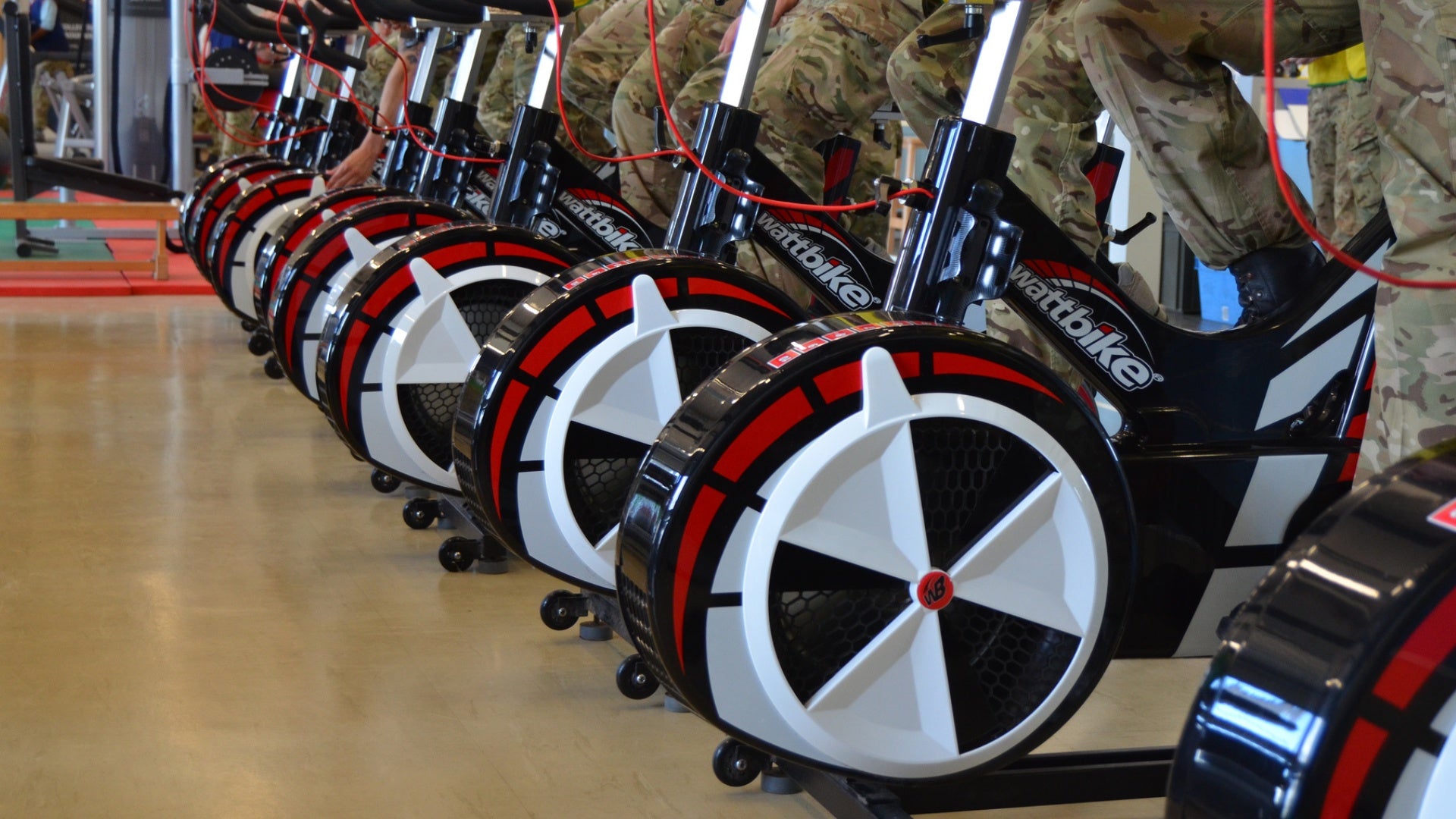The British Army
March 09, 2021 3 min read
The Wattbike A3 Test is officially part of the MATT2 Fitness Document (Military Annual Training Tests and Workplace Induction Programme), which maps out the mandatory fitness tests military personnel must undertake.

Changing military landscape
The British Army has adapted to many changes during the last 30 years. Shifts in conflicts, threats, and tactics, have led to inevitable developments in the way the army trains and tests their troops.
Traditionally, the army tested the fitness level of soldiers through a number of rigorous assessments, including a timed 1.5 mile run. In 2013 however, it became apparent that these tests required updating as they did not fully reflect the demands of current and future military operations.

Wattbike A3 test introduced
In 2013, Wattbike Consultant Sport & Exercise Physiologist Eddie Fletcher and Business Development Manager Gary Mason joined forces after Brigadier John Donnelly, Major Ian Phillips, and Lt.Col. Brian Dupree expressed the need for an alternative test to the 1.5 mile run.
After two years of developing, designing, and testing, the Wattbike Alternative Aerobic Assessment (A3 Test) was presented as an alternative.
At this moment in time, the Special Forces, the Defence Medical Rehabilitation Centre, and the Defence Primary Healthcare had already been using Wattbikes for rehabilitation for a number of years, and in collaboration with the RAPTC (Royal Army Physical Training Corps), the idea of off-feet training and an alternative option to the 1.5 mile run was proposed to test the physical capabilities of troops.

“The Alternative Aerobic Assessment on the Wattbike was an exciting new development and our first official partnership with a supplier to progress physical training assessments. ”
- The British Army

Pilot run in april 2015
The A3 Test was designed as a three part assessment on the Wattbike that allowed Physical Training Instructors and the Chain of Command to accurately monitor the aerobic fitness of each individual. In addition, the A3 Test provided a challenging, low impact, and individualised training routine as well as an alternative to the 1.5 mile run.
The test consists of a sub-maximal ramp test to determine each individual’s training zones and a 13 week individualised training plan. When the A3 test was presented, decision makers such as Brigadier John Donnelly, Major Ian Phillips, and Lt.Col. Brian Dupree pushed for the test to be included in the military’s testing protocols.
Their support resulted in the Wattbike A3 pilot launching in April 2015, with 600 Wattbikes introduced across the country and PTI’s being offered Wattbike training.


"These bikes give people the tools they need to set specific goals, giving a real sense of purpose to their training. The research undertaken by the RAPTC with Wattbike has allowed us to design an assessment that will allow soldiers to stay fit and injury free, benefiting both the Army and individuals."
- The British Army

Wattbikes now fully adopted by the British Army
After this pilot run, the Wattbike A3 Test was formally introduced, and it's now officially part of the MATT2 Fitness Document (Military Annual Training Tests and Workplace Induction Programme), which maps out the mandatory fitness tests military personnel must undertake.
The A3 test has now become the mandatory test for medically downgraded troops and in April of 2016 the A3 Test replaced the 1.5 mile run for all personnel aged 35+.
The test has seen great success and continues to pick up support across the ranks, and there are now over 2000 Wattbikes within Army units and over 100 specially trained RAPTI’s.
Take the next step
Transform your gym or training facility. We have everything you need to take training to the next level, from the Wattbike Pro and Trainer, to our range of Training & Education Programmes, and Wattbike Zones tailored to your gym.
Contact our Commercial Sales team to find out more
Get in touch
Also in Case Studies

Wellfit Gyms Dubai
March 05, 2024 3 min read
Wellfit, a UAE-based start-up offering vast, world-class fitness facilities and amenities is taking the region by storm, with sights set to become the region’s biggest fitness brand.

Hirai Racing Team Studio
March 05, 2024 2 min read
The Hirai Racing Team Studio opened in Ogikubo, Tokyo this month with the aim of improving cardiovascular fitness and health for all.

Success Secret Physiotherapy
March 04, 2024 2 min read
Subscribe
Sign up to our newsletter for the latest news, exclusive offers, and more...










